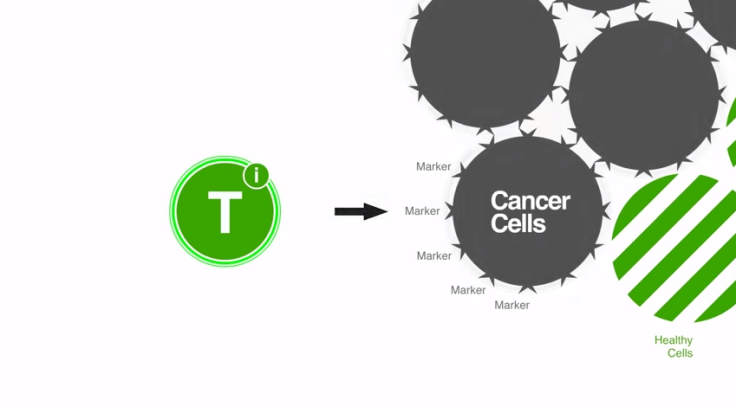Cancer Vaccine ImMucin Shows Promising Results After Clinical Trial; May Work On 90% Of All Cancer Types

Researchers in Israel have taken a truly innovative approach toward treating cancer in their attempt to harness the body’s own immune system to fight off the disease. Based on clinical trials for a cancer vaccine, called ImMucin, results look promising. According to Vaxil BioTherapeurtics, ImMucin's makers, in Nes Ziona, Israel, the cancer vaccine triggers an immune response in about 90 percent of all types of cancer.
“Vaxil is developing a drug to keep the cancer from coming back,” Julian Levy, Vaxil’s CFO, told NoCamels.com. “We are trying to harness the natural power of the immune system to fight against cancer by seeking out cancer cells and destroying them.”
Although ImMucin would not be a “cure” for cancer, when used in addition to treatments such as radiation and chemotherapy, the vaccine would help patients in the earliest stages of cancer significantly increase their chances of survival.
The vaccine has performed consistently well in trials in patients with multiple myeloma and breast cancer, but it’s suspected that at this point Vaxil does not have the resources to further push the drug to the U.S. market. In American trials, drug development and research can cost millions per trial and No Camel reported that Vaxil’s most recent value was only $3 million.
Unlike the Gardasil vaccine commonly given to women to prevent cervical cancer, ImMucin is given to individuals who are already sick. ImMucin is a therapeutic vaccine and works by stimulating the immune system and teaching it to attack cells that possess the markers for cancer.
Cancer cells are abnormal cells that have begun to multiply rapidly in the body. Unlike viruses and bacteria, they are not invading entities, and the body finds it difficult to respond. What's more, the cancer treatments often compromise the immune system, making it even more difficult for it to respond to the cancer. The vaccine would teach the immune system to send T cells to search for specific markers, which appear on cancer cells, and to destroy only those cells with the cancer marker. The researchers claim that the vaccine can also prevent the cancer from mutating and becoming resistant, a problem found in many other cancer treatment approaches.
Vaxil developers hope that if introduced into a patient early enough, the drug may be able to train the immune system to automatically attack the cancer cells, and thus keep the disease at bay.
The vaccine teaches the immune system to search and destroy cells that have the cancer marker MUC1, and according to Vaxil, 90 percent of all cancers use this specific marker.
Another key benefit to the vaccine is the fact that it can be used on nearly all of the world’s population. However, although theoretically it can be used on everyone, the developers warn that since the vaccine uses the body’s immune system to fight off cancer, it would be most effective on individuals with healthy immune systems. This means that unfortunately the cancer would most probably only be effective in cancer patients in the earliest stages of the disease.
Correction: In the original article it was written that Gardasil was given to combat cancer. Gardasil is given to prevent cancer.



























